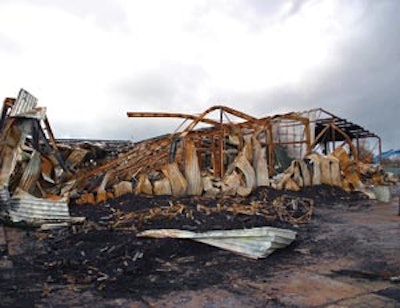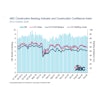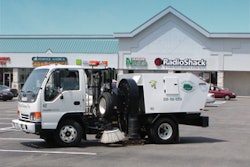
In light of what happened along the Gulf Coast states, it's probably a good time to review your disaster recovery plan. The size of your company, type of equipment you operate, number of units involved and complexity of your work will determine to what extent you need to formalize a recovery plan of some sort.
Many of you right now are thinking, "I don't live in an area susceptible to disasters of any sort. I don't need this." You may be correct about the area you work in, but you are still susceptible to fire, water damage, wind damage, power failures, etc. You may think on a scale of 1 to 10 that you are in the 2 range when it comes to risk. But the risk is there and will bite you when you least expect it— you know, Murphy's Law.
Those of you with larger companies in higher risk areas need to spend time and money to develop and maintain a security and recovery program. Those with smaller operations in a low-risk area perhaps just need common sense. The rest of you fall somewhere in between. But all of you need to establish what to do if there is an area disaster, fire, flood, power outage, system failure, death of an executive or whatever else you care to add to the list.
Key areas to consider include your people, your assets, your systems and your customers.
Protect people first
Your people are your most valuable asset. In the event of a disaster, you need to quickly get answers to the following questions:
1. Where are they? Can you contact them?
2. Do they need assistance?
3. Can they get back to work?
4. When will they get back to work?
At minimum, more than one company executive should have a current list of employees and their contact information.
It's also a good idea to have a copy of the company health insurance policy readily available. This information should be updated quarterly and each time you receive a new policy. Have your office manager update your files for both the employee list and policy by mailing it to your house. That way, you know it got there.
Work with a pro
It is possible to earn a living without your equipment and other company assets. However, if they are misplaced, lost or damaged, you could be put out of business if you don't have a program in place to cover your needs.
Working with a sharp insurance agent or company that you can rely on to follow up is a must. Everybody is busy— contractors don't have time to devote to sophisticated insurance matters. You need a pro with an excellent team behind him/her to analyze your needs, provide coverage you can afford and update your coverage as your conditions change.
Tracking your assets may also provide value. GPS-based equipment tracking systems provide the capability to locate units whenever you need to know where they are.
Copy sensitive data
What about the information in your systems? Can you run your business without knowing your cash situation; who owes you money; who do you owe; what jobs are pending; how to calculate the next payroll; and all the other information stored in your general ledger? I don't think you could.
The trick is to store a copy of your data off site every day. (Note: Every day means every day.) A system should be in place to either send a copy of the data off site or produce a copy that can be taken off site on a daily basis. If the boss is not there, the next person on the list must take responsibility for transporting the copy safely off site. If you ever wanted to stay away from Murphy's Law, this is the time. Re-creating your records is not a pleasant experience.
Take care of
customers
Customers have needs, too. If something happens and you can't perform, what do you do? Customers need to be contacted. Scheduling has to be updated. More people need to be hired, if necessary. Work should be subbed out as needed.
Once again, you need to have access to your customers. To do so, you will need a list of work-in-process and pending jobs. This is another reason to make sure your customer data is available off site every day.
Get with the
program
Nothing covered here is off the wall. It's just a matter of delegating a task and making sure your team is following the program. After a while, it should become habit.
And even if you live and work in a low-risk area, I guarantee you will have use for this information at some point in your business career.




















